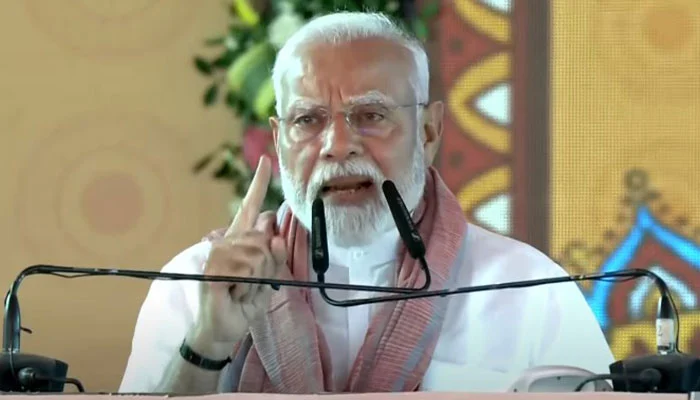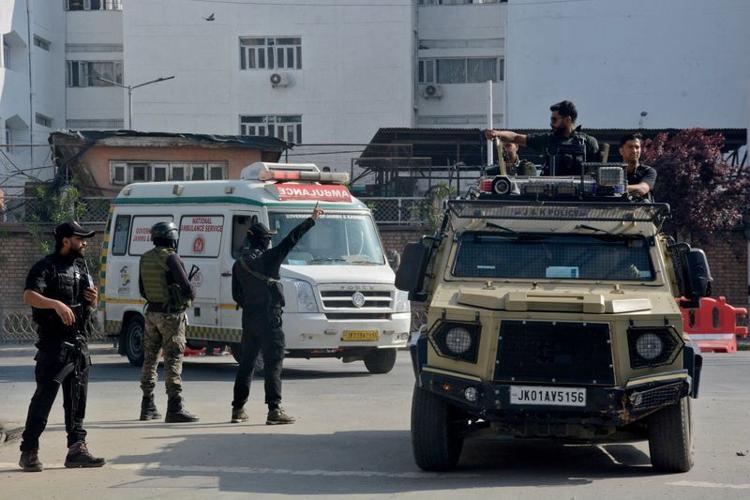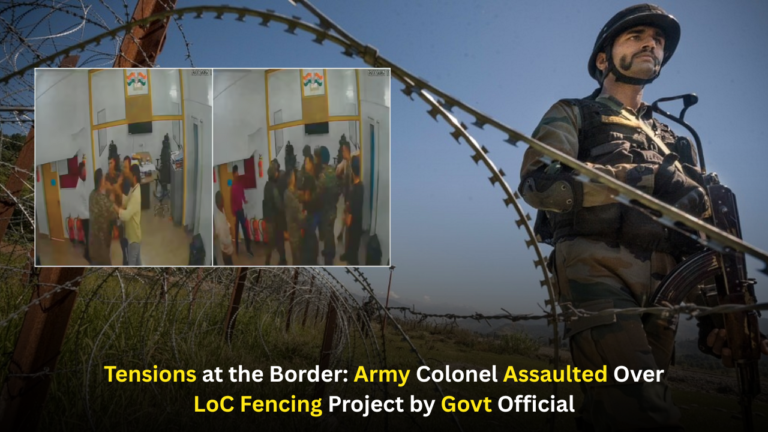
Kashmir
Kashmir attack: Indian Prime Minister Narendra Modi pledged on Thursday to hunt, monitor and prosecute terrorists and their supporters in a sturdy reaction to a lethal militant assault on tourists in Kashmir, where police have stated that two of the attackers were Pakistani.
During a speech in India’s eastern state of Bihar, Modi clasped his hands in prayer in memory for the 26 men who were shot and killed in a field in the Pahalgam area of Indian Kashmir, urging thousands in the audience to do the same.
“We will track them down to the ends of the earth,” Modi declared, addressing the attackers, without mentioning their identities or naming Pakistan.
His remarks are, however, likely to further enrage relations between the nuclear powers rivals after India downgraded ties with Pakistan late on Wednesday, suspending a six-decade old water treaty and closing the only land border crossing between the neighbours.
Pakistan Power Minister Awais Lekhari referred to suspending the Indus Waters Treaty as “an act of water warfare; a cowardly, illegal move”.
Indian Kashmir police issued notices on Thursday identifying three suspected militants “involved in” the attack, and offering rewards for their arrest.
Two of the three suspected militants are Pakistani nationals, the notices stated. They did not explain how the men were identified.
India and Pakistan each claim separate territories in Kashmir.
Indian Foreign Secretary Vikram Misri on Wednesday informed a cabinet committee on security of the cross-border connections of the attack, the deadliest against civilians in India in almost two decades.
India’s highest ranking diplomat in its foreign ministry did not provide evidence of the connection or further elaboration.
New Delhi will also withdraw its defence advisers from Pakistan and cut staff numbers at its mission in Islamabad to 30 from 55, Misri added.
India has recalled the senior diplomat at the Pakistan embassy in New Delhi, local media reported, to serve notice that all defence advisers in the Pakistani mission were persona non grata and had a week to depart, one of the steps Misri announced.
Modi has also requested an all-party meeting to inform opposition parties about the response of the government to the attack.
Summury
- India will identify, track and punish every terrorist and their backers, Modi says
- Police say two of the attackers are Pakistani
- Indus Waters Treaty survived two India-Pakistan wars since 1960
- Protesters rally outside Pakistan embassy in New Delhi

AT THE EMBASSY PROTEST
Dozens of protesters marched outside the Pakistan embassy in New Delhi’s diplomatic area on Thursday, chanting slogans and jostling against police barricades.
In Islamabad, Prime Minister Shehbaz Sharif was to chair a meeting of the National Security Committee to debate Pakistan’s reaction, Foreign Minister Ishaq Dar tweeted in a post on X.
The Indus treaty, brokered by the World Bank and signed in 1960, governed the division of waters of the Indus River and its tributaries between India and Pakistan. It has survived two wars between the neighbours since then and extreme strains in relations at other times.
Diplomatic ties between the two nations were already fragile even prior to the recent measures since Pakistan had recalled India’s envoy and not sent its own ambassador to New Delhi following India’s abrogation of the semi-autonomous status of Kashmir in 2019.
The Tuesday attack is considered a set back to Modi and his Hindu nationalist Bharatiya Janata Party’s image of a great success in abolishing the special status Jammu and Kashmir state had enjoyed and pacifying and developing the long-restive Muslim-majority region.
India has repeatedly accused Islamic Pakistan of supporting an insurgency in Kashmir, but Islamabad insists it merely provides diplomatic and moral support to a call for self-determination.
Tens of thousands of individuals have been slain in Kashmir since the rebellion started in 1989, but it has diminished in recent years and tourism has boomed in the picturesque region.



